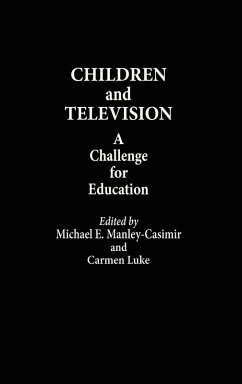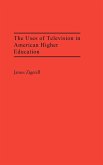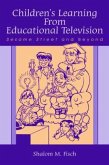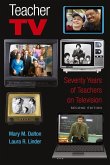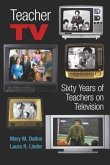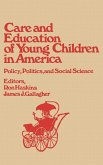Since the mid-1970s a shift in perspective has occurred on the relationship between TV and young viewers. Researchers, parents, teachers, policymakers, and consumer advocate groups have shown increased criticism of televisions's role as social educator, babysitter, agent for mass consumer socialization, and perpetrator of questionable social values, morals, and mythical human behaviors. Educators intersted in understanding the complex and wide-ranging contrversies about the influence of television on children will find much in this edited collection to clarify their understanding of the empirical research, educational practice, and national policy issues raised by the relationship between TV and children. The empirical and theoretical studies in Part I explore the interactive relationship between TV and the child viewer. In opposition to the widely held view that the child is a passive recipient of TV information, these studies show that children's background knowledge and their cognitive and experimental skills influence how they interpret TV content, symbolic form, and ultimately, its influence on what kind of learning takes place. The effects of reciprocal relationships of TV violence, commercial advertising and reading ability are investigated in other chapters in this section. Part II moves to practical educational questions and presents approaches to curriculum design for the teaching of critical and literate viewing skills. Innovative curricula, based on principles of liberal education, which encourage active and critical viewing, are spelled out in detail. Part III compares the policies of governments in industrialized nations in assuring the quality of children's television. An annotated list of studies and position papers published from 1975 to 1983 concludes this work.
Hinweis: Dieser Artikel kann nur an eine deutsche Lieferadresse ausgeliefert werden.
Hinweis: Dieser Artikel kann nur an eine deutsche Lieferadresse ausgeliefert werden.

